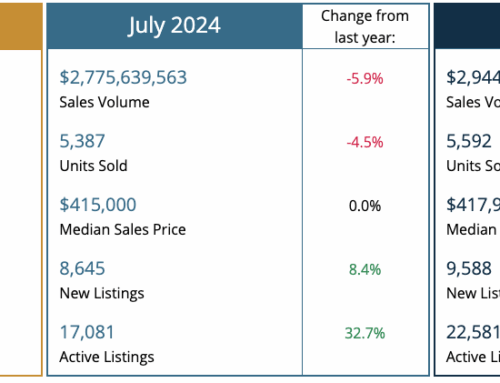
Should a Seller Get a Home Inspection Before Listing Their Home?
Should a Seller Get a Home Inspection Before Listing Their Home?
Home inspections are a key part of any real estate transaction. Almost every buyer will have one, ensuring they understand exactly what they’re purchasing. But should a seller get a home inspection before listing? Let’s explore the advantages and potential drawbacks of this proactive approach.
Reasons for Getting a Home Inspection Before Listing
1. Understanding the Condition of Your Property
A home inspection before listing allows you to fully understand the condition of your home, so you’re not caught off guard later. When a buyer conducts their inspection, issues may arise that could cause them to back out of the sale. This could delay your listing and raise red flags for future buyers. A pre-listing inspection gives you the opportunity to address potential issues upfront, preventing future setbacks.
 2. Repair Work
2. Repair Work
A pre-listing inspection can uncover problems that you can repair before the property is listed. Waiting for the buyer’s inspection may result in last-minute negotiations, where the buyer could demand repairs or ask for a price reduction. Fixing issues early ensures you’re not rushed into repairs during contract negotiations, potentially saving time and stress.
3. Reducing Stress
Selling a home can be stressful. A pre-listing inspection allows you to confidently know the true condition of your property. You won’t have to worry about any surprises when the buyer’s inspector arrives, and the likelihood of the sale falling through will be lower.
4. Helping Buyers
While buyers will usually conduct their own inspections, providing a home inspection report upfront can help them feel more confident in their purchase. By already knowing the condition of the home, buyers can make informed offers, factoring in any issues discovered during the inspection.
5. Improving Negotiations
A pre-listing inspection can streamline negotiations. With fewer surprises, there’s less room for the buyer to request price reductions or repairs. This can lead to a faster, smoother sale, as the buyer already knows what to expect.
6. Setting the Right Price
Accurate pricing is crucial. If you have a clear understanding of the home’s condition, it’s easier to set a realistic price. A pre-listing inspection allows your real estate agent to assess the home’s value based on factual information, helping avoid overpricing or underpricing.
7. Helping Your Realtor
Your real estate agent will benefit from knowing the true condition of your home. This allows them to price it appropriately and negotiate with confidence, knowing they have all the facts on their side.
Condo Owners: Special Considerations
If you’re selling a condominium, keep in mind that you’re not responsible for the roof of the building; that falls under the homeowner association (HOA)’s purview. However, it’s still essential to have the HVAC system inspected—particularly the equipment on the roof. Many times, the insulation around HVAC lines deteriorates over time, and this issue frequently appears on inspection reports. Addressing this before listing your condo can help you avoid delays or renegotiations later.
Reasons Against Getting a Home Inspection Before Listing
1. The Cost
A home inspection can cost anywhere from $500 to $1,000 or more, depending on your location and the size of your home. Additional tests, such as mold, radon, or lead inspections, can add extra costs. If you’re on a tight budget, these expenses may feel unnecessary, though the potential benefits could outweigh the initial investment.
2. Full Disclosure
If the inspection uncovers problems, you may be required to disclose them to the buyer. This is standard in many states and ensures that buyers are aware of any issues before purchase. While it’s often better to address these issues before listing, failing to do so can lead to legal complications if you don’t disclose them.
3. More Inconvenience
A pre-listing inspection means having your home inspected twice: once by your inspector and once by the buyer’s. While this isn’t always necessary, it may inconvenience you with additional inspection appointments. Keep in mind, different inspectors may find different things, and buyer inspections could still turn up additional issues, even if you’ve already addressed others.
Final Thoughts
While there are costs and inconveniences involved, the benefits of a pre-listing inspection typically outweigh the drawbacks. A thorough inspection gives you peace of mind, helps set the right price, and can lead to smoother negotiations. For condo owners, remember to have the HVAC system inspected, especially the roof-mounted components. The decision to conduct a pre-listing inspection depends on your priorities, but it can ultimately save you time and stress during the selling process.I’m happy to talk with you and discuss the benefits as we prepare to list your home or condominium!















